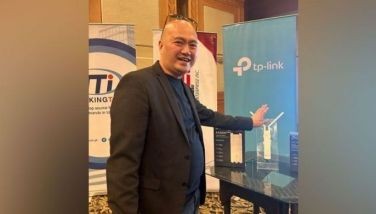We need to build a Sustainable Future
Business and government must understand how sustainability requirements filter down throughout companies and government operations. Please allow me to highlight a few areas for your considerations.
The quality of the environment
A sustainable community sees itself as existing within a physical environment and natural ecosystem and tries to find ways to co-exist with that environment. It does its part by avoiding unnecessary degradation of the air, oceans, fresh water, and other natural systems. It tries to replace detrimental practices with those that allow ecosystems to continuously renew themselves.
The recent and present flooding in many parts of the country must be seen as a reason not to neglect the water management. Government and the private sector must see water management as part of disaster resilience.
Disaster resilience and mitigation
We must understand that a community has to be resilient in the face of inevitable natural disasters like typhoons, earthquakes, floods, and drought. The community must take steps to ensure that such events cause as little damage as possible, that productivity is only minimally interrupted, and that the quality of life remains at (or quickly returns to) high levels. A disaster-resilient community further takes responsibility for the risks it faces and tries to be self-reliant. Ensuring food sustainability and security remains a big task in the Philippines. It is a daunting endeavor, but not impossible.
We have to say goodbye to plastic waste
The proper management of plastic wastes must include plastic bags, sachets, labels, laminates, and both rigid and flexible plastic used for such products.
There is no question that we must get rid of single-use plastic!
Degradable plastic is another option that needs to be taken seriously. That’s why Matter makes all sorts of goods with plant-based biopolymer and fiber. Think trash bags, food storage containers, tableware, plates, and bowls. They’re like sustainable superheroes of the real world.
All of their products:
* Return valuable nutrients to the soil
* Reuse crop waste
* Are certified compostable.
Beyond all that, creating Matter products uses less energy than conventional manufacturing. Check out Matter and replace your (garbage) plastic items with something a lot better. I suggest you look at Matter products to buy or to develop your own.
A Sustainable Future can be created by integrating sustainable consumption and production principles into policymaking, business practices, and consumer behavior. Furthermore, investing in new technologies is crucial.
There is hope that government, non-government organizations, the private sector, and sustainability advocates will do their share to attain the dream of a Sustainable Future. The Nation’s commitment to maintain a delicate equilibrium between growth and sustainability on one side, and environmental stewardship on the other, is a holistic approach that encompasses people, planet, and prosperity!
In this context, I thoroughly enjoyed Lazarda’s annual environment, social and governance (ESG) impact report, highlighting four pillars under its ESG commitment: empowering communities, a future-ready workforce, environmental stewardship, and effective governance.
I look forward to your comments. Please email me at [email protected]
- Latest























